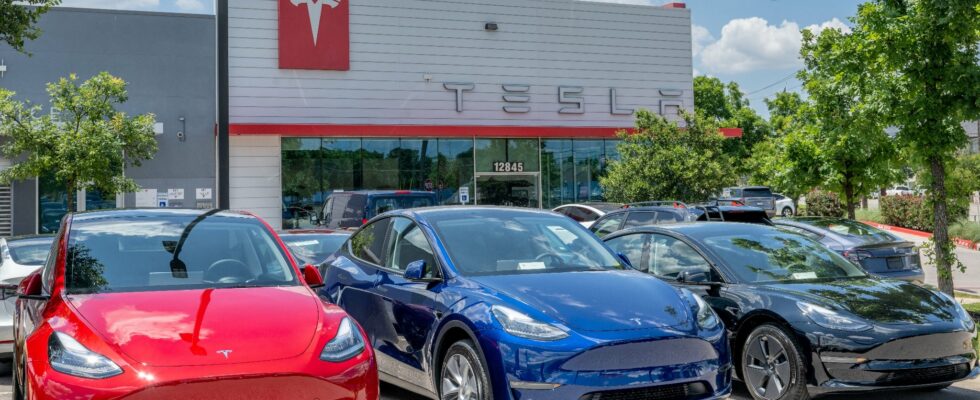The EU is considering imposing tariffs of up to 36% for five years on imports of Chinese electric cars, but remains open to an alternative solution from Beijing, the European Commission announced on Tuesday 20 August. These customs duties, which will be added to the 10% taxes already applied to vehicles manufactured in China, will enter into force by the end of October, subject to the approval of the 27, unless an alternative agreement with Beijing is reached by then. They will then replace provisional taxes decided at the beginning of July, and set at 38%, the Commission specified in a press release.
This decision is based on an investigation launched in 2023, which revealed how these manufacturers present in China were able to benefit from a large subsidy regime from the government, a form of dumping which, according to Brussels, penalized domestic manufacturers who could not benefit from such a boost. According to the American think tank The Atlantic Council, nearly 40% of Chinese electric vehicle exports went to the European Union. To take the measure of the phenomenon, the European Commission therefore sent a questionnaire to the manufacturers concerned. The aim was to exchange as much information as possible between these manufacturers, the Commission and the Chinese government. Depending on the level of cooperation and transparency of the said manufacturers, Brussels therefore applied a surcharge ranging from 17% to 38%, the lowest penalty being directed at BYD and the highest at MG, a former British manufacturer, which has since come under the Chinese flag.
A tax on the Tesla brand
The Commission is also considering imposing a 9% tax for five years on imports of Tesla electric vehicles manufactured in China, a decision that the 27 must still confirm by the end of October. Individually, EU members do not all have the same position vis-à-vis billionaire Elon Musk, who asserts significant economic interests in Europe. In Germany, the only Tesla electric car assembly mega-factory in the EU employs around 12,000 people near Berlin. The billionaire, a public supporter of Donald Trump, is considering opening a second one, which has earned him courtship from leaders of the Old Continent including the President of the Italian Council, Giorgia Meloni and Emmanuel Macron. The French president has received him four times since spring 2023 and hopes to attract investments from the company, which is capitalized at 632 billion dollars (573 billion euros).
However, Tesla has lost some of its luster in recent months with declining sales. The company announced in mid-April that it would lay off 14,000 employees worldwide, or 10% of its workforce. The group has also had to face a social conflict: in the fall of 2023, a strike launched in Sweden by many workers spread to Denmark, Finland and Norway.
